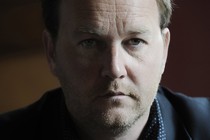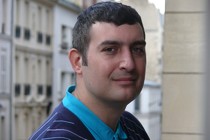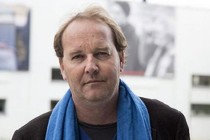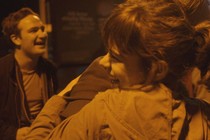The Price of Fame: Beauvois converses with Chaplin
- VENICE 2014: In this film in competition at Venice, the director has a whale of a time and even gets emotional without losing any of his thoroughness, sweeping the audience along with him
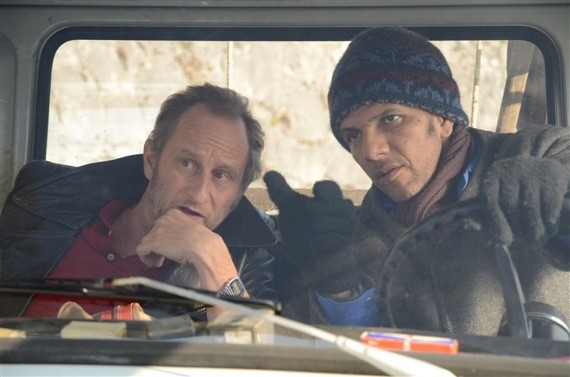
Four years after the Grand Prix he won at Cannes for Of Gods and Men [+see also:
film review
trailer
interview: Xavier Beauvois
film profile], Xavier Beauvois has stunned and literally enchanted the audience at the Venice Film Festival with his new film, The Price of Fame [+see also:
trailer
interview: Xavier Beauvois
film profile], which he presented in the international competition. Indeed, even though he still knows how to inject lighter elements into his films, the French actor and director is known for his cinematic austerity (the workmanship displayed in his films is still equally as meticulous as their tone and the subjects they tackle are serious); yet this time around, he breaks the mould by pouring forth wonder from a fairly dull situation – wonder, this incredible vehicle that is brought to mind when we talk about the “magic of cinema”. Right from the very first minute of the film, the heavy, metallic noise of sinister prison doors gives way to the vastness of the ocean, which heaves to a spectacular orchestral accompaniment, and you can’t get more cinematic than that. Beauvois even takes the opportunity to humorously toy with this contrast using his usually fairly aloof, rarely optimistic style – including by appearing on screen in a ringmaster’s costume (just because you’re showing off your funny side, it doesn’t mean you can’t be elegant, and Charlie Chaplin certainly wouldn’t disagree!).
The plot is a revelation: The Price of Fame tells the story of two stoney-broke immigrants living in Switzerland who, just after the death of the great filmmaker who created the character of the Little Tramp (the plot unfolds at Christmas 1977), decide to steal his body in order to then demand a ransom from his widow. On one hand there’s Osman, an Algerian labourer and father (a character for which Roschdy Zem rediscovers the solemnity that he previously used for Beauvois in his The Young Lieutenant [+see also:
trailer
film profile], which was in selection at the time at Venice Days), who never complains about his life in a makeshift hut ("We even have running water!" he announces proudly to his friend) and is swamped with the medical bills for his hospitalised wife. Meanwhile, his partner in crime, Eddy, is a Belgian ex-convict whose relaxed attitude to life and joie de vivre have not been in the least bit affected by his stay in prison (he is played with obvious delight by Benoît Poelvoorde, whom this role fits like a glove). Together, they will try to get away with a brilliant and ridiculous plan involving shovels and pickaxes, and for the most part amateurish anonymous phone calls.
The tribute to the great Chaplin and the love letter by a film director that this film represents are not only expressed on the surface, in the plot and in the energy of the symphonies borrowed from Chaplin’s films – or by superimposing a requiem and film-noir-style music. Beauvois works on a deeper level. The characters, both in their shared poverty and in their differences (the submissive and unyielding Osman resigns himself to helping out when Eddy doesn’t let anything get in his way, as he ramps up the drama), are two sides of Chaplin’s character, and their plot, at the same time desperate and laughably absurd, is one well and truly worthy of the Little Tramp. Just like that much-celebrated character, the director blends tragedy and comedy with panache, transitioning seamlessly from a scene involving a refused bank loan to a hilarious sequence in which Osman lets himself get carried away by Eddy in a little dance, before the incredulous and mesmerised gaze of Samira, Osman’s intelligent daughter. It is possible to see this astonishment and emotion in Osman’s and Eddy’s eyes on the night they commit their crime. We see this fascination once again in Samira’s quasi-hypnotised gaze when she sees Chaplin on the television for the first time and when the circus passes through. This gaze also becomes that of the viewer, astounded and whisked away by the perfect combination of comedy and drama, of death and laughter, of life and cinema, and by the lyricism that springs forth as the audience’s view meets that of the camera.
(Translated from French)
Did you enjoy reading this article? Please subscribe to our newsletter to receive more stories like this directly in your inbox.














